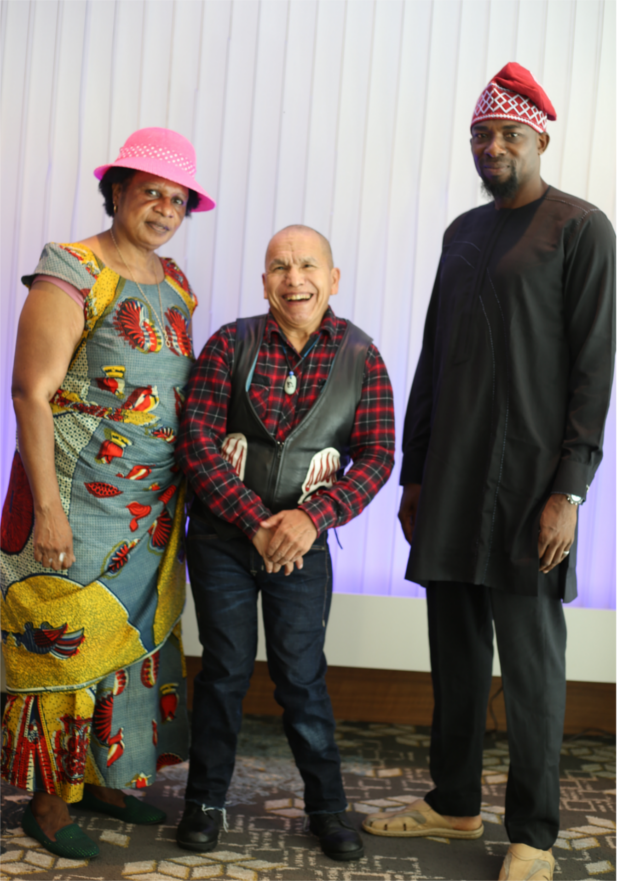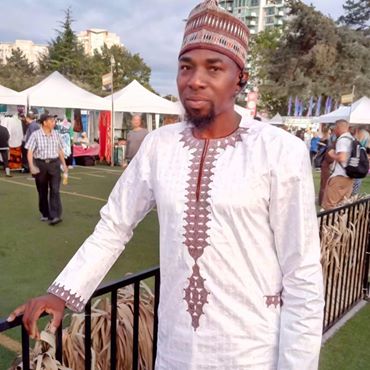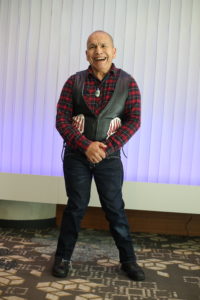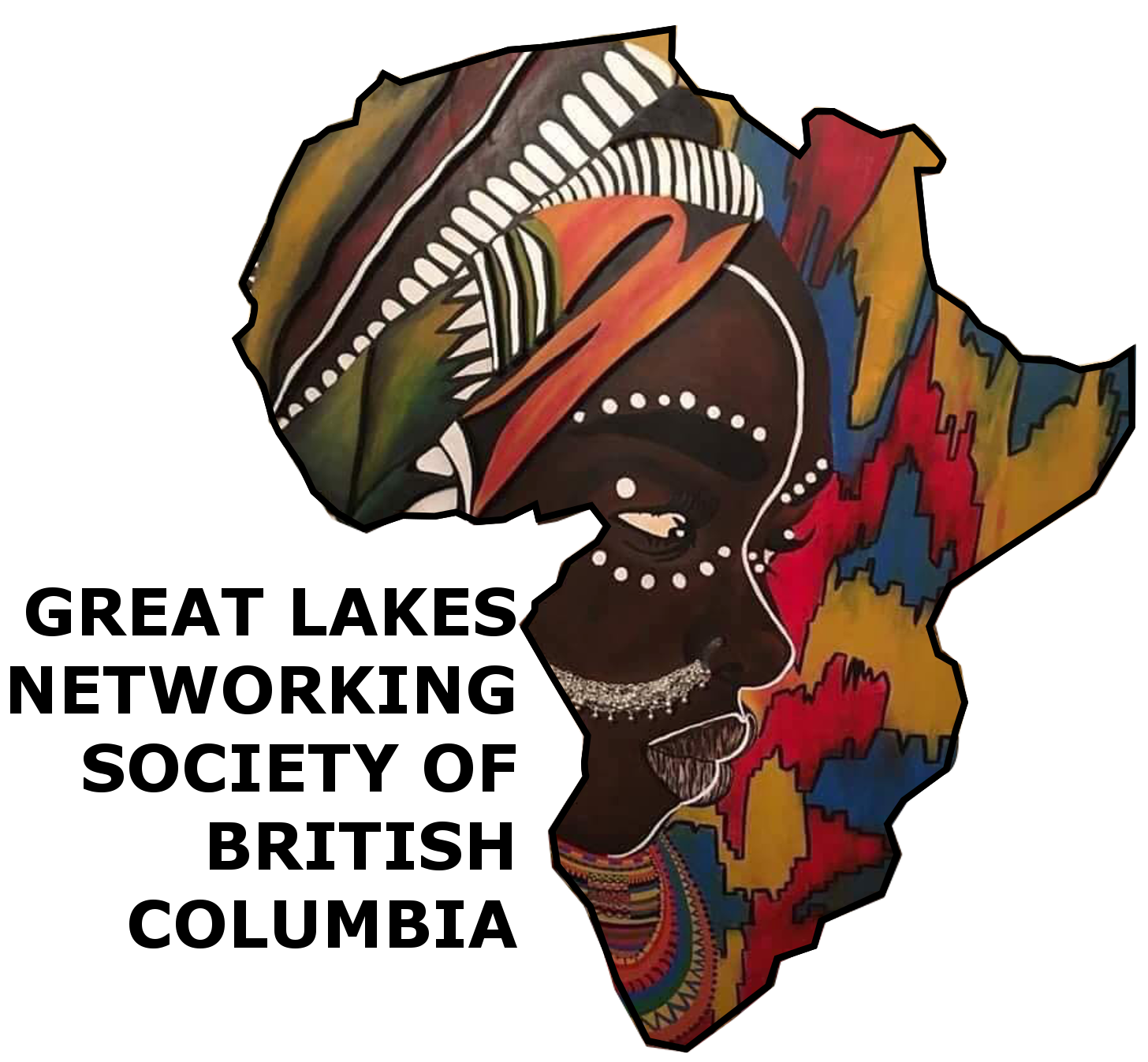ABOUT US, Who we are and What we do
About Us
Great Lakes Networking Society of BC is a Black-led, Black-driven, BIPOC-governed grassroots organization with intersectional leadership. We are community-rooted and purpose-driven, committed to advancing social justice, equity, and transformative impact in alignment with Canadian Heritage priorities and global frameworks for the rights of People of African Descent, in Canada and in partnership with African civil society.
Empowering youth, uplifting communities, and advancing justice. Rooted in Black leadership, guided by equity, resilience, and purpose. Creating opportunity, connection, and a thriving future for all.
At the Great Lakes Networking Society of BC, we believe in the power of arts, culture, sports, and education to transform lives and strengthen communities. Rooted in Black leadership and BIPOC governance, our work spans generations, helping people discover hope, belonging, and purpose—at home in Canada and across the African diaspora.
We stand with underserved and interfaith minority communities, ensuring that youth, seniors, families, and people living with disabilities have access to safe spaces/platforms where they grow, create, and connect. From storytelling through the arts, to mentorship through sports, to building opportunities that ripple across generations, we are a grassroots organization working with allies and partners to drive meaningful, lasting change.
What We Do
Through our programs, community members, especially youth, are supported to:
Connect and find a sense of belonging.
Learn life skills and leadership tools.
Be guided by mentors and role models.
Express themselves through arts, culture, and sports.
Strengthen their mental, emotional, and physical well-being.
Break cycles of poverty and open doors to brighter futures.
Our Approach
Lasting change begins from within communities. That’s why we: Partner with local and international Civil Society organizations.
Train and support grassroots leaders as true agents of change.
Provide mentorship, coaching, and knowledge-sharing.
Harness creativity, technology, and innovation to amplify community-led solutions.
Together, we are building resilience, opportunity, and transformation that lasts.

Board Responsibilities
The Great Lakes Networking Society of BC operates under a structured governance framework where the CEO, also the founder, collaborates with a co-CEO overseeing Indigenous programs. The volunteer board, consisting of roles such as President, Vice President, Secretary-General, Assistant Secretary, and Financial Director, holds key responsibilities. They appoint leadership, approve policies, and make significant decisions impacting organizational operations and advocacy efforts. The CEO acts as a custodian, implementing the board’s directives and guiding the society towards its goals.
Management Duties
Makes operational decisions, policies, and procedures, keeping the board educated, and informed with well-documented recommendations and information.
Board Functions
Our board functions best, focusing on higher-level, future-oriented issues and priorities, and the need to get more intrinsically involved. When the board sees negative results, its red flags and delves deeper into management issues to get the organization back on track for the duties of the programs to fulfill. The Board approves the annual budget, and audits and shares with its members during their annual general meeting, with recommendations of the budget for the upcoming year.
Supporting the CEO
Our Board has an open strong working relationship with the management and this has made our organization benefit in a notable way, the Board to continue supporting both CEO in implementing board decisions, such as awarding or ending contracts. At times, the CEO asks the board for intervention and support, the CEO will always need the board to intervene with management in ways that help raise performance. Board will also support the CEO by using their networks within the community to support the work of the organization.
Read more…
THE CEO, CO-CEO AND THE BOARD
Great Lakes Society is governed by active and experienced volunteer Board, They are activist, advocates, and organizers, Men, Women, and Youth . The Board ensures that the organization is compliant with the best practices, and case study
VOLUNTEER BOARD OF DIRECTORS
CEO/FOUNDER-KOMBII B. NANJALAH
CO-CEO-STEPHEN LYTTON
BOARD MEMBERS
President - Taofic Youssouf Vice- President - Patience Magagula Secretary-general - Joshua Khamala Assist. Secretary - Ivy Aliban Finance - Samuel Mulongo

Kombii Nanjalah
CHIEF EXECUTIVE OFFICER
Kombii Nanjalah – Chief Executive Officer
The Volunteer Board appointed Kombii Nanjalah as CEO of the Great Lakes Networking Society of BC. She represents Blacks/African diaspora, people of color, and religious minorities communities, while also coordinating international programs.
Kombii has served in a variety of leadership capacities and sits on multiple boards. She is an activist, community leader, and Shop Steward with the BC Government and Service Employees’ Union. (BCGEU). Her work is deeply rooted in social justice, equity, diversity, and inclusion, guided by anti-oppression, anti-racism (including anti-Black and anti-Indigenous racism), and decolonizing frameworks.
With a strong commitment to ethics and solidarity, Kombii leads at the intersection of community empowerment and advocacy. She continues to stand at the forefront of efforts to create more inclusive, resilient, and just societies both locally and globally.

Stephen Lytton
CO-CHIEF EXECUTIVE OFFICER
Stephen Layton represents the Indigenous peoples and helps the community to understand the past history of Indigenous peoples, working towards reconciliation, and healing. Lytton is a member of the Nicomen Indian Band within the Nlaka’pamux First Nation.
An accomplished actor, writer, and presenter, Stephen Lytton has presented both in western and eastern Canada to various groups regarding his personal experiences as a survivor of the residential schools and as an Aboriginal person living with a disability.

Mouhamed Youssouf
PRESIDENT
The President Was born in Benin officially the Republic of Benin (French: République du Bénin) and formerly known as Dahomey, is a country in West Africa. It is bordered by Togo to the west, Nigeria to the east, Burkina Faso to the north-west, and Niger to the north-east. A father, a husband, and a community leader with stories to share, this is what is on his mind: 2020 has been an incredible year. A year that has been packed with historic moments that many of us won’t forget any time soon.

Patience Magagula
VICE PRESIDENT
The Vice President, is an advocate for those people living with HIV/Aids, they curry lived experiences in Black communities.

Joshua Khamala
SECRETARY GENERAL
Secretary General-“Education, Training, Scholarships, Awards and Youth Sports”. Holds a Degree in Tourism and Hospitality Management, Diploma from North Shore Culinary School, and a Diploma in Marketing from BCIT Canada.

Samuel Mulongo
FINANCIAL DIRECTOR
Financial Director, Risk Management, Media, Communications, and Fundraising.

Assistant Secretary General
Ivy Aliban
PRINCIPLE OF SPECIALIZATION
Every individual is assigned a duty according to their skills and qualifications
ORGANIZATIONAL RESPONSIBILITIES
Board members follow designed organizational guiding Principles including the principle of the objectives, with set up aims to achieve common goals in various programs. The principal of GLBC, the Hierarchical structure, authority, unity of command, division of staff, line-span of control, equality of responsibility, authority, etc. enable GLBC board to believe and recognize collaborations and partnerships, the stakeholders, and the communities they work with to achieve the objectives.
Wajumbe wa Bodi wanafuata kanuni za kuongoza shirika hili pamoja na kanuni ya Malengo. Malengo yaliyowekwa yafaa yatimizwe kufanikishwa kwa malengo ya kawaida katika mipango mbali mbali. Malengo makuu ya GLBC, muundo wa Hierarkiki, mamlaka, umoja wa amri, mgawanyiko wa wafanyikazi, safu ya udhibiti, usawa wa jukumu, mamlaka, ni jukumu la Bodi ya GLBC, ambayo inatambua na kuamini ushirika, kwa wadau, na kwa jamii wanayofanya kazi na ziriki hili kwa kufikia malengo yayo ya kawaida.
PRINCIPLE OF SPECIALIZATION
The principles emphasize effective organization: duties aligned with skills, clear authority, and defined responsibilities to avoid neglect, ensuring efficiency and cost-effectiveness while adapting to change. Coordination is crucial across activities. Span control, authority respect, and balanced work assignments are integral.
Kombii Nanjalah
Chief Executive Officer
The Great Lakes Networking Society of BC (GL-BC) is a Black-led, Black driven, purpose-driven, community-rooted organization, committed to social justice, equity, and transformative impact.” A nonprofit organization deeply committed to Truth and Reconciliation, decolonization, and anti-racism. With roots reaching back over 130 years, GL-BC acknowledges both the historical harms of colonization and its responsibility to Promote healing, justice, and positive change across Metro Vancouver and beyond.
At the heart of GL-BC’s mission is the creation of inclusive, safe spaces where communities, volunteers, and staff engage in open and honest dialogue about racism at both individual and systemic levels. This includes addressing anti-Black, anti-Indigenous, anti-Asian, anti-Muslim, anti-Semitic, and other forms of discrimination. We emphasize on active listening, continuous learning, accountability, and allyship as essential practices for building more equitable communities.
GL-BC departs from traditional hierarchical models by centering grassroots leadership and power-sharing, ensuring community voices guide decision-making, programs, and advocacy. The organization is also committed to children and youth, advancing policy reforms and community-driven initiatives that dismantle systemic barriers and create opportunities for marginalized young people to thrive.
About Ms. Kombii Nanjalah – CEO/Founder
Ms. Kombii Nanjalah, Founder and CEO of GLBC, is a community leader, mother, grandmother, and lifelong advocate for justice. Her work began in Nairobi, Kenya, where she supported street children and vulnerable youth, helping to improve the lives of over one million children before relocating to Canada.
In Vancouver, she continues this mission through hands-on support for the homeless, people living with addictions, and individuals navigating mental health challenges, particularly in the Downtown Eastside (DTES). She is also a BCGEU Shop Steward, using her leadership to protect and amplify workers’ rights.
Ms. Nanjalah is recognized for her fearless advocacy for Black anti-racism, the girl-child, former child soldiers, and access to education for young women in Africa. Her commitment to justice and equality has earned her recognition such as Kenya’s Presidential Award for contributions to social development. She has also been actively engaged in grassroots empowerment with organizations like MYSA (Mathare Youth Sports Association in Kenya, UN Habitttat, UNDP Nairobi office, others.
Grounded, approachable, and uncompromising in her values, Ms. Nanjalah brings a unique blend of compassion, resilience, and determination to every space she enters. She embodies the belief that arts, culture, and creativity transform lives and build unity across divides.
In Canada, Ms. Nanjalah celebrates diversity and works to strengthen connections across cultures, languages, and faiths. She champions shared values of respect, inclusion, and dignity, promoting communities where collective aspirations rise above division. Through GL-BC, she continues to champion a collective impact model that harnesses the power of community to create lasting, positive change.
Stephen Lytton
Co-Chief Executive Officer

Continued…
Stephen Lytton was born in Lytton, BC in 1955. He was born affected with cerebral palsy that has affected his mobility from the waist down. The condition led to many developmental delays due to limited access to service out of Lytton. Stephen experienced a great deal of corrective surgery and lengthy hospital stays throughout his childhood. He walked assisted by leg braces from the waist down.
www.cacv.ca/stephen-lytton
I grew up in Lytton, British Columbia, and moved to Vancouver in 1978, while in my early 20s. In 1992, I moved to the Downtown Eastside. I found some aspects of life in this area frightening at first, but soon made friends and became comfortable here.
www.cacv.ca/stephen-lyttons-talk.
Stephen Lytton Receives GG Caring Canadian Award
by CACV ADMIN
On Friday, March 4, 2016, Stephen Lytton received the Governor General’s Caring Canadian Award. The award “recognizes individuals who volunteer their time to help others and to build a smarter and more caring nation. The award also highlights the fine example set by volunteers, whose compassion and engagement are so much a part of our Canadian character.
Stephen gave a speech at the 2010 CACV annual general meeting and became a CACV board member in 2013.
Stephen recently performed in “Bah! Humbug!” at the Fei and Milton Wong Experimental Theatre. He will be a featured presenter at the Ignite conference in Prince George in June.
From the official media release: Stephen George Lytton, Vancouver, BC
Refusing to accept the marginalization of First Nations people with disabilities, Stephen Lytton has volunteered with the British Columbia Aboriginal Network on Disability Society since 1991, where he currently serves as president. Under his leadership, the Society promotes Aboriginal participation in community planning and provides disability, health and social support services throughout the province.
Mouhamed Youssouf
President

The community has been very much at the heart of so many of these moments. After all, that’s what community is all about – bringing like-minded people together to form bonds, create movements, build bridges, strengthen relationships and drive lasting change. At Great Lakes Society, we support communities from all walks of life, all origins and backgrounds through our set up – powerful programs which was sort of hard during the COVID”19 times, our Community Resilience team focused on supporting vulnerable and undeserved communities who were most at risk during the COVID–19 pandemic. We provided online, and phone coping strategies support during COVID challenges. That time of need, the earth, the leaders, activists, civil society, and members of our communities, stood together. I’m stunned at how our homeless families are treated, and if asked to go home and isolate when discharged from hospitals, how do they do that; which homes do they go to?
The demographic databases are crucial information for Covid-19 which is not being provided for the testing, tracking, tracing, treating, containing, and eventually eliminating this pandemic.

